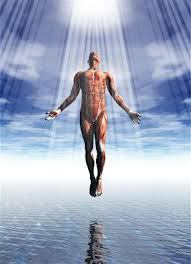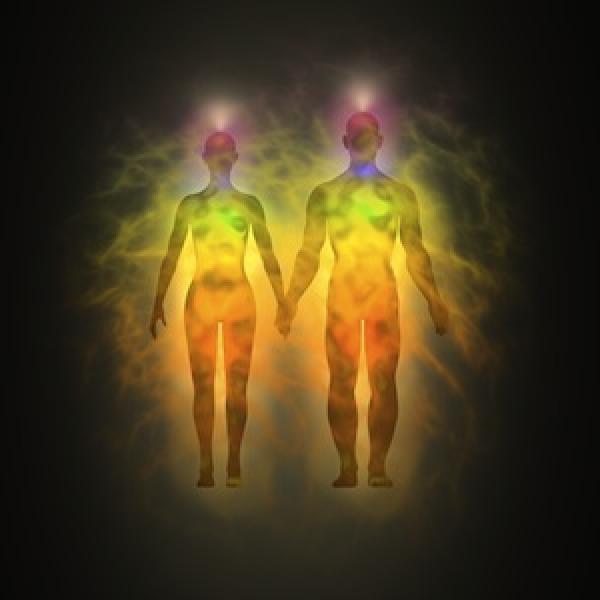 How can one die healed? It seems as if there is conflict in this statement. The conflict is not in the statement itself but in the definition of healing. In standard medical practice, healing deals specifically with the body. When a broken leg is healed, the patient can walk again. When cancer is healed, the patient does not die. To a medical doctor in the game of life, a death is a loss.
How can one die healed? It seems as if there is conflict in this statement. The conflict is not in the statement itself but in the definition of healing. In standard medical practice, healing deals specifically with the body. When a broken leg is healed, the patient can walk again. When cancer is healed, the patient does not die. To a medical doctor in the game of life, a death is a loss.
In holistic practices, healing is the act of becoming whole and at peace. Many people carry pain from incidents in their life. Bottled up anger and frustration can last for ten, twenty, even seventy years. A gray-haired man told me of anger at his parents over an incident that happened when he was eleven. A man nearing his seventies still feels hatred for his father who died almost thirty years prior. A woman in her forties is still affected by sexual harassment as a teenager. When we are hurt and our life is altered, we may carry the pain for the rest of our lives.
Many holistic healing therapies appear to work with only the physical body. The objective is to assist in the balancing of energy flow and to help release the blockages created by emotional issues. Feelings of stress, anxiety, fear and rejection first affect our flow of energy, and if they are not dealt with can manifest physically.
 Healing involves understanding the emotions that have broken down your aura of health. Sometimes the issues have progressed beyond the point of physical healing, and while the spirit can realize freedom, the body cannot. Though our immediate desire is to cure the physical ailment, the most important goal is to feel the freedom of inner peace.
Healing involves understanding the emotions that have broken down your aura of health. Sometimes the issues have progressed beyond the point of physical healing, and while the spirit can realize freedom, the body cannot. Though our immediate desire is to cure the physical ailment, the most important goal is to feel the freedom of inner peace.
In breakthrough therapy, our personal issues are identified and investigated. Difficult as it may sound, true release arrives when we feel love and gratitude for our experiences. A traumatic incident may alter our viewpoint and improve our life. When we understand the effect the incident has on us, and realize that it was an important step in our spiritual growth, we find joy within ourselves.
Often, a traumatic incident results in blame, anger, or even hate. We hate the person that imposed their will and blame our pain and issues on someone else. We question why it happened to us. Quite often the feelings are true and the actions of another are unforgivable. To release, we do not need to forgive. We need to understand the impact of the incident on who we are, and how our life was changed. If you love yourself and who you are, then you can only be thankful for all the experiences that guided you to be that person.
Maintenance of anger, hate, or internal pain is a choice. To hate someone for something that happened years ago, while understandable, is still an emotion of your own making. A new perception can help you refocus. How did your feelings direct your life? What are the positive events that occurred to you as a result of those feelings? Did anger direct you to focus your energy on growth or success? Did fear allow you to empathize with others experiencing similar emotions? Did rejection cause you to seek acceptance from another direction? Each pain experienced alters your life path, and you must realize that many of your discoveries would not have occurred without the pain. Ultimately, forgiveness is a gift that you give yourself.
 All humans die, and as we approach death, it is time to look back at life and understand it. Healing includes the realization that everything that happened to you was necessary. We progress when we understand why things happened, find joy from this understanding, and reach the peaceful feeling of acceptance and gratitude. Some people die still carrying their hate and anger, while others manage to release these emotions and feel whole. It is possible for a person to heal before they die. Understanding the transience of our physical existence and the continuance of spirit, it is really spirit that matters. Carry your peace and tranquility into death and the experience of your soul is expanded.
All humans die, and as we approach death, it is time to look back at life and understand it. Healing includes the realization that everything that happened to you was necessary. We progress when we understand why things happened, find joy from this understanding, and reach the peaceful feeling of acceptance and gratitude. Some people die still carrying their hate and anger, while others manage to release these emotions and feel whole. It is possible for a person to heal before they die. Understanding the transience of our physical existence and the continuance of spirit, it is really spirit that matters. Carry your peace and tranquility into death and the experience of your soul is expanded.
Transformation Exercises
1. Describe an incident in your life that you feel you will never get over.
2. Make a list of the problems this incident has caused in your life.
3. Make a list of the beneficial life changes that resulted from the incident.
4. Why was this experience necessary for your growth?
Excerpted from Soulwork 101: A New Age Guide to Personal Transformation by Glenn Stewart Coles
©Copyright 2009, 2015 Glenn Stewart Coles







